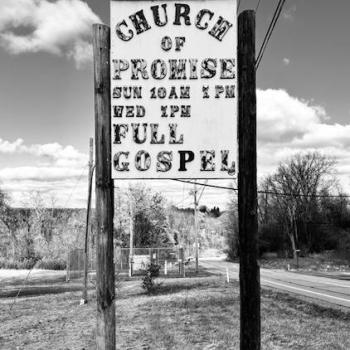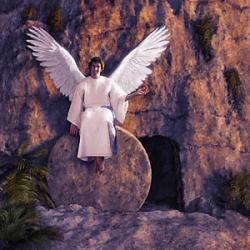It would be an understatement to say that the Torah disapproves of idol worship. The years the Jews spend in the desert and beyond are characterized by the Jews worshiping idols, getting punished for doing so, being told not to do it again, and then doing it again. Only days after receiving the Torah, the Jews were already dancing around the golden calf. In the Re'eh portion, the Jews are once again warned not to engage in idolatry, even when there is great temptation and reason to do so:
If there stands up in your midst a prophet or dreamer of dreams, and he will produce to you a sign or a wonder, and the sign or the wonder comes about, of which he spoke to you saying "Let us follow gods of others...," do not listen to the words of that prophet or that dreamer...And that prophet and that dreamer, shall be put to death.(Deut. 13:2-6).
If your brother, the son of your mother, or your son or your daughter, or the wife of your bosom or your friend who is like your own soul will entice your secretly, saying "Let us go and worship the gods of others." You shall not accede to him...your eye shall not take pity on him, you shall not be compassionate...You shall surely kill him... You shall pelt him with stones and he shall die. (Deut.13:7-11).
Here, the text presents perhaps the two most irresistible idolatrous temptations, the brilliant false prophet, who performs miracles, and the loved one who is "like your own soul." In both cases, the Jews are told to kill the tempter, without mercy or compassion. One of the worst things a Jew in the Torah can do is say to his brother, "Let us follow other gods." Not only does the text instruct the Jews to kill those who have fallen into idolatry in their community, but the idols belonging to the other nations must also be destroyed.
Utterly destroy all the places where the nations that you shall possess worship their gods on the high mountains and the hills, and under every leafy tree. You must tear down their altars, break up their sacred pillars, burn their Asherah trees, and chop down the statues of their gods. You will obliterate their names from that place." (Deut. 12:2-3)
Why? What exactly is the Torah singling out for merciless destruction? The Re'eh portion provides a possible answer: "For even their sons and their daughters have they burned in the fire for their gods." (Deut. 12:31). Perhaps the fear of human sacrifice provides a plausible reason for destroying their idols and killing our brothers. The idolaters are so terrible, they even kill their children; to protect ourselves, no mercy or compassion can be given.
Or, this invocation of human sacrifice dehumanizes and distances the other nations just enough that it becomes possible to conquer them with no mercy or compassion atop every mountain and under every leafy tree. The specter of human sacrifice services this end because human sacrifice haunts the Torah from its beginning, when Abraham attempts to sacrifice his son to God, and goes as far as binding him on the altar, requiring God to send an angel to stop him.
While the Torah's text wants to paint the idolatry, as a whole, and the practice of human sacrifice specifically, as foreign, it is woven into the Torah's fabric from the start and continues to be present in the Re'eh portion. Even as the text distances itself from one kind of human sacrifice, it demands another. In place of offering your child to be burned to other gods, we are commanded to stone our children with no mercy or compassion if they worship the supposedly foreign gods. Is this commandment not an ideological killing of your fellow for God—a human sacrifice? This is especially true if idolatry is seen for what it was, a homegrown practice later imagined as foreign imposition.
A piece of pottery was found in the Sinai Desert, within the borders of ancient Israel, dated to 800 BCE, with the following inscription: "I have blessed you by YHVH our guardian and His Asherah." The Tetragrammaton God of the Torah (YHVH) existed with other gods in the Jewish community. It is not "their Asherah trees" that we must eliminate, but our Asherah trees that the Torah instructs us to burn. And, as our Asherah trees burned, so did the collective memory of an ancient Goddess of the Israelites.
8/23/2011 4:00:00 AM





